Mastering Nighttime House Training for Your Puppy: A Comprehensive Guide
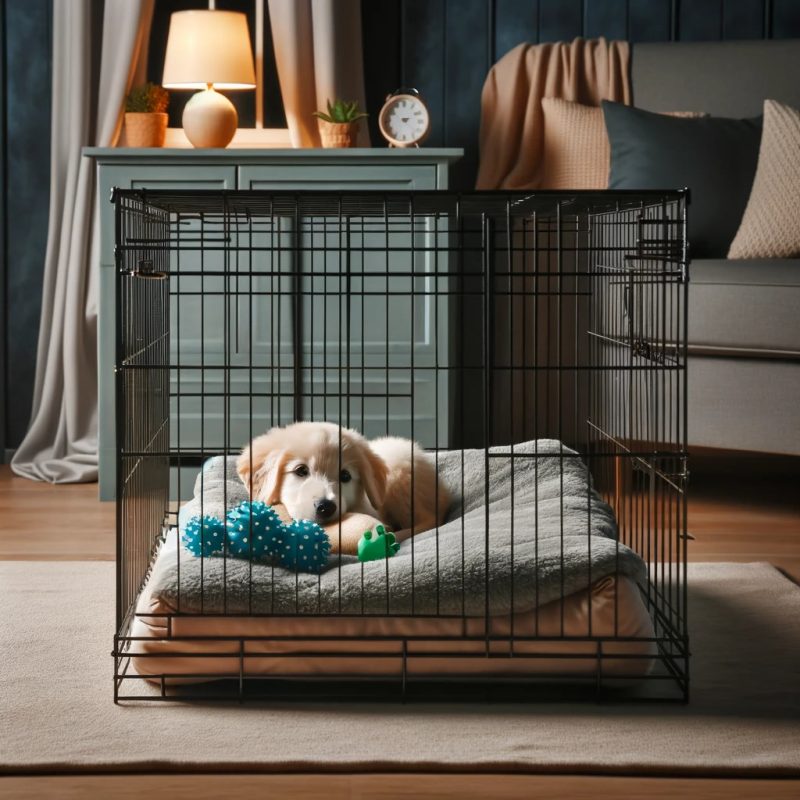
When it comes to house training a puppy at night, many pet owners feel overwhelmed.
However, with a blend of patience and strategy, this task is far less daunting than it appears.
In this guide, we’ll explore effective techniques for nighttime house training that have worked wonders for many puppy owners.
The Role of Crates in Nighttime House Training
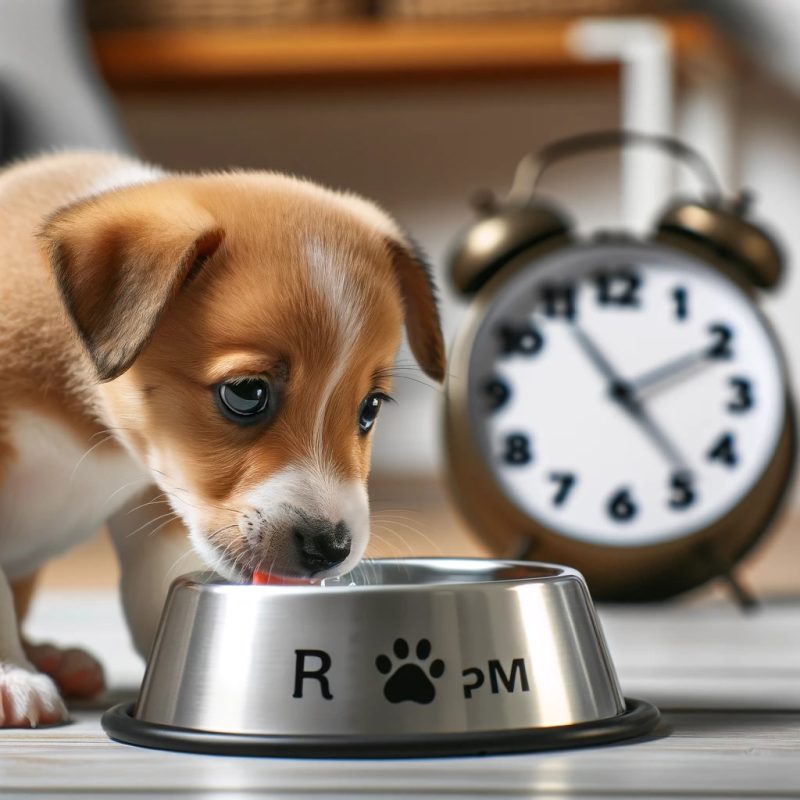
Introducing your puppy to a crate at night might seem challenging, but it’s a crucial step in house training.
Initially, your puppy may resist staying in the crate and even cry, which is natural.
However, persistence is key. A common mistake is allowing the puppy into your bed, which can lead to long-term sleep disruptions and accidents.
A crate not only helps in establishing a routine but also ensures a mess-free morning.
For those hesitant about crate training, we also offer alternative house training methods without a crate.
Managing Water Intake Before Bedtime

A simple yet effective trick in house training is controlling water access a few hours before bedtime.
This reduces the likelihood of middle-of-the-night bathroom breaks.
Drawing from personal experiences, removing the water bowl 2-3 hours before sleep significantly decreases nighttime disruptions.
The Importance of a Final Potty Break
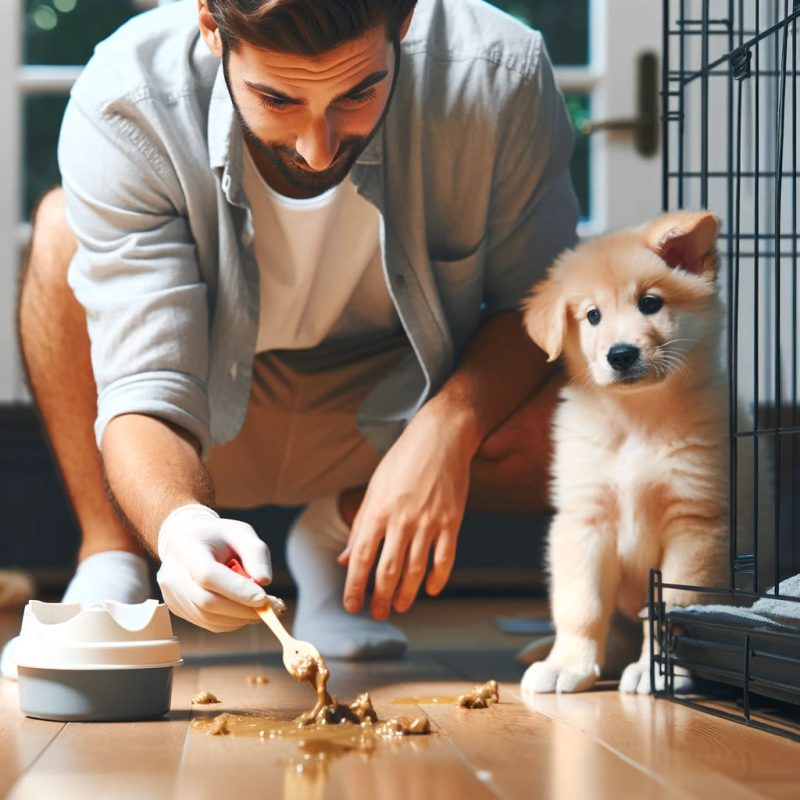
A crucial step in the process is taking your puppy out for one last bathroom break before you go to bed.
This should be a separate outing from the post-dinner potty time.
Just like humans, puppies also benefit from a final bathroom visit before sleeping, helping to prevent accidents during the night.
Handling Accidents with Understanding
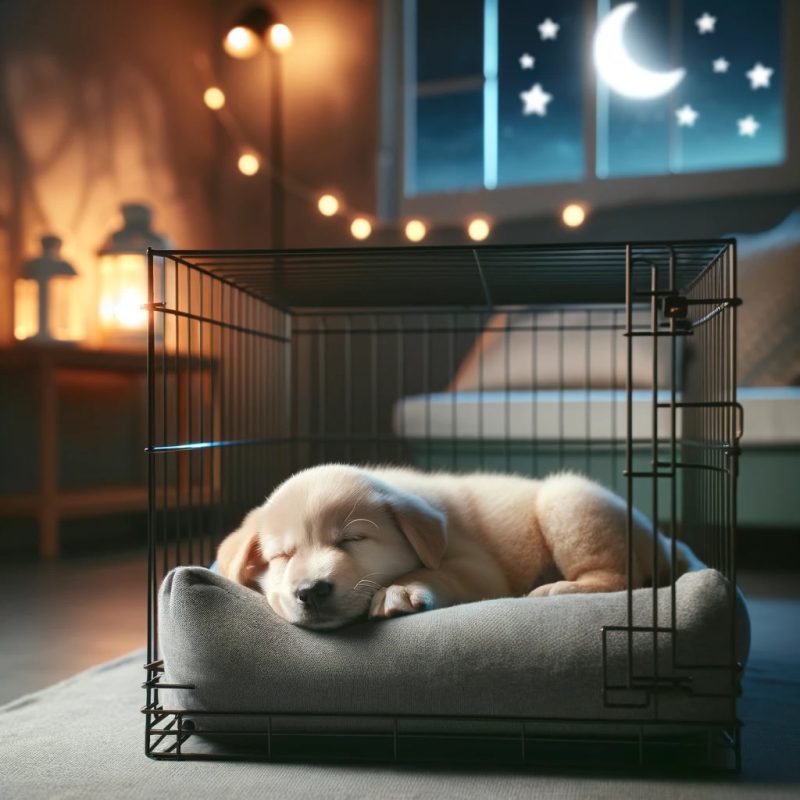
Despite your best efforts, accidents can happen.
It’s important to remember that puppies, like children, are individuals and may not always follow the book.
If your puppy has an accident in the crate, don’t see it as a setback.
Instead, consider setting an alarm for a middle-of-the-night bathroom break.
This won’t be a permanent routine but a temporary measure during the training phase.
Embracing the Emotional Aspect of Training
It’s natural to feel a tug at your heartstrings when you hear your puppy whimper at night.
Staying firm and consistent is essential for successful house training.
With time and patience, your puppy will adapt to the new routine and environment, leading to peaceful nights for both of you.
In conclusion, house training a puppy at night requires a balanced approach of firmness, patience, and understanding.
By following these guidelines, you and your puppy can enjoy restful nights and a strong, lasting bond.

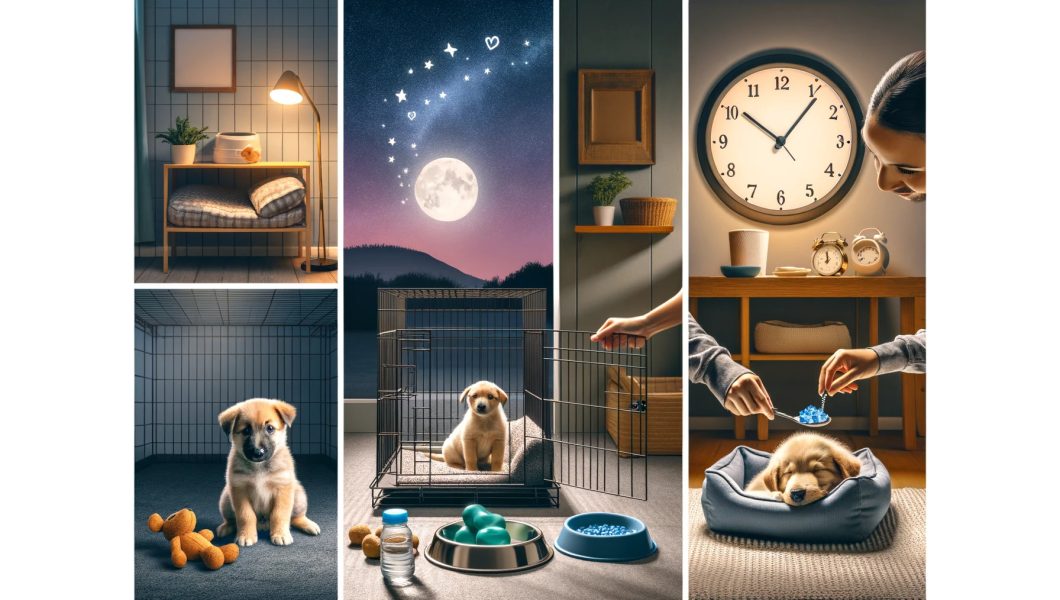




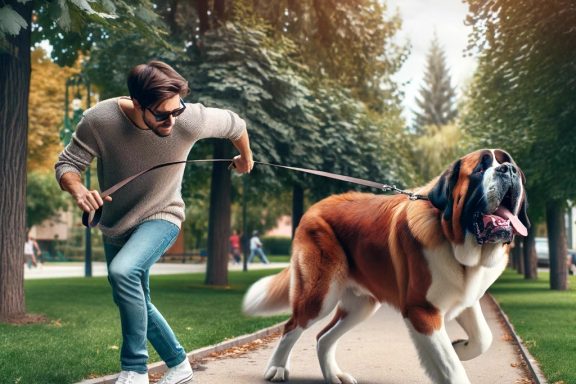
No Comments